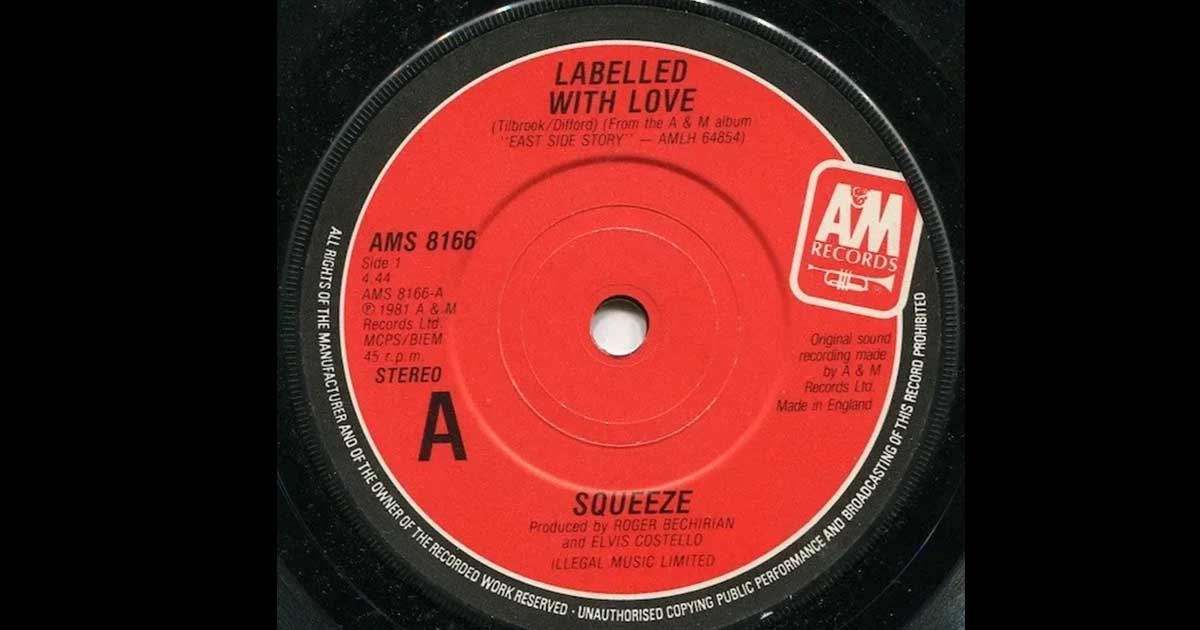My daughter is at the age now where she is being impressed by designer labels and influenced by the endless stream of subtle marketing coming at her on every screen she looks at. I’ve never been a fashion victim, nor have I succumbed to the belief that wearing labels will make me feel more confident. To be honest, I abhor the waste of money. Why pay thousands for something that is only worth hundreds, just because it has a label? I just hope that my role modelling will sink in eventually.
Diagnostic labels
But that’s a rant for another day. Today I want to tackle a different kind of label. The kind of label that has the potential to damage young lives. The kind we affix to people who we believe violate the social norms that we cling to. I’ve been guilty of it myself and I realise now that it came from a place of ignorance. For I have recently had to embark on a journey of discovery with my son to establish the reason behind his apparent struggle when it comes to working to his full potential at school. As those of you who know me well will know, I love research and devour mountains of information to help me make sense of my world. I am a bit bleary-eyed after spending hours reading up on Attention Deficit Hyperactive Disorder (ADHD) because it was flagged as a possible explanation for my son’s diminished ability to concentrate. My head is still spinning from the assessment process that we went through last week that involved filling out reams of paperwork, answering a multitude of questions and hours of testing that my son had to sit through. The invoice at the end of it all made my eyes water and my bank balance take a bit of a dive. And that’s only the beginning of the journey! Now that we know for sure that ADHD is holding him back, we can take the necessary steps to address it.
Understanding the struggle
Despite the aforementioned challenges of the journey so far, I am relieved to have arrived at a place where I have better insight into what my son has been dealing with and what can be done to help him. It actually breaks my heart to think that kids like my son go through their lives trying desperately to please their parents, carers and teachers, but fall flat on their faces at certain hurdles. For my son, the biggest hurdle he faces is when he tries to read and retain information that he is required to regurgitate in order to demonstrate his knowledge. While he knows that he knows his stuff, his ability to demonstrate it is compromised by the way his brain functions. A study published in the Journal of Psychiatric Neuroscience and Therapeutics suggested that there is evidence to show that a functional disconnection between the frontal and occipital cortex in the brain may explain why people with ADHD struggle with attention. Imagine the anxiety and frustration this must cause a person who is trying their hardest to achieve their goals. I am not surprised at all to read that people who suffer with the disorder, but remain undiagnosed, go through their lives feeling depressed. The two hallmarks of good mental health are when a person feels they are living a meaningful life and when they are growing toward fulfilling their potential. Sadly, a person with a psychiatric disorder such as ADHD will struggle to achieve these two things if they don’t get the support they need.
Facing the stigma
While ADHD is one of the most common psychiatric disorders among children in the world today, it still carries with it a stigma. You see, many people live in ignorance of what ADHD actually is. Unless you are close to someone who is affected by it, you are unlikely to delve into the detail of it. Out of this ignorance comes the belief that the symptoms of ADHD are somehow under the control of the individual with the disorder, and with that comes a public stigmatization. I remember, back in my days of ignorance, witnessing the rejection suffered by one of the boys in my daughter’s class because of his behaviour. The poor kid was incapable of reading social cues and barged into conversations without any sense of self-regulation. He came up against a lot of hostility, not just from his peers but from teachers and other parents too. He was misunderstood and written off as a bad kid. Even when his mother informed us that he had the disorder known as ADHD, people still raised their eyes to heaven as if to say,
You’re just trying to excuse his bad behaviour.
The kid bore the stigma for the rest of his primary school days despite there being a vast improvement in his behaviour once he was medicated. It was as if the label of ADHD gave people the right to judge him unfairly and prevented them from being able to see his strengths and potential as a person.
About the child
Labels can be useful in some cases where they allow a person to get the appropriate support they need, whether at school or socially. But ultimately, it’s got to be about doing what’s right to ensure the child is given the best shot at a happy life. In my view, the only way to ensure this is by fully engaging with the person who is being labelled, understanding what is really going on for them and finding a way to meet their needs. The last thing they need is to feel the heavy weight of a stigma bearing down on them. It is very common for kids that are labelled to internalise the stigma and live their lives accordingly. Their self-esteem is eroded over time by the lowered expectations others have of them and they end up believing they are less worthy than others. It is a fact that ADHD does not automatically mean a person is less capable. The disorder doesn’t discriminate and doesn’t cause a person to be any less intelligent. It just means they are less likely to reach their full potential if left untreated. It’s therefore important that children with or without disorders are seen within the context of who they are and what they are capable of. This way we can ensure they are understood and given all the encouragement and support needed to help them live their best life. If this involves taking a pill, then so bit it. I’ve always been a great believer in tackling our problems from the inside, using the mind to overcome as much as possible. But in the case of a psychiatric disorder such as ADHD, medication has been proven time and time again to be the best option when used in conjunction with other things such as a healthy diet, enough exercise, good sleep and open communication. As the psychologist said to me the other day, if your child was diagnosed with Diabetes you wouldn’t think twice about medicating them with insulin.
What we tell our kids sticks
I love the story of Thomas Edison, the great American inventor, who in 1854 was sent home from school one day with a letter addressed to his mother. The letter said
Your son is addled (mentally ill). We will not allow him to attend our institution any longer.
Mrs Edison told her son that he was too clever for the school and she prepared an excellent home-schooling routine for him instead. Her courage and constant faith in her son’s abilities made him the genius he grew up to be. With a mother’s love as true and strong as Mrs Edison’s, anything is possible. At the very end of his life, Edison famously said ‘My mother was the making of me. She was so true, so sure of me, and I felt I had someone to live for, someone I must not disappoint.’
What this journey has taught me thus far is to look beyond a child’s behaviour and be curious about what might be going on for them. If we keep on open mind about their possible struggles, we might just give them the encouragement they need to feel as worthy as anyone else. And remember, the words we use to describe a person will determine what we see in them. From now on, I will choose my words carefully.
Thanks for being here today.

